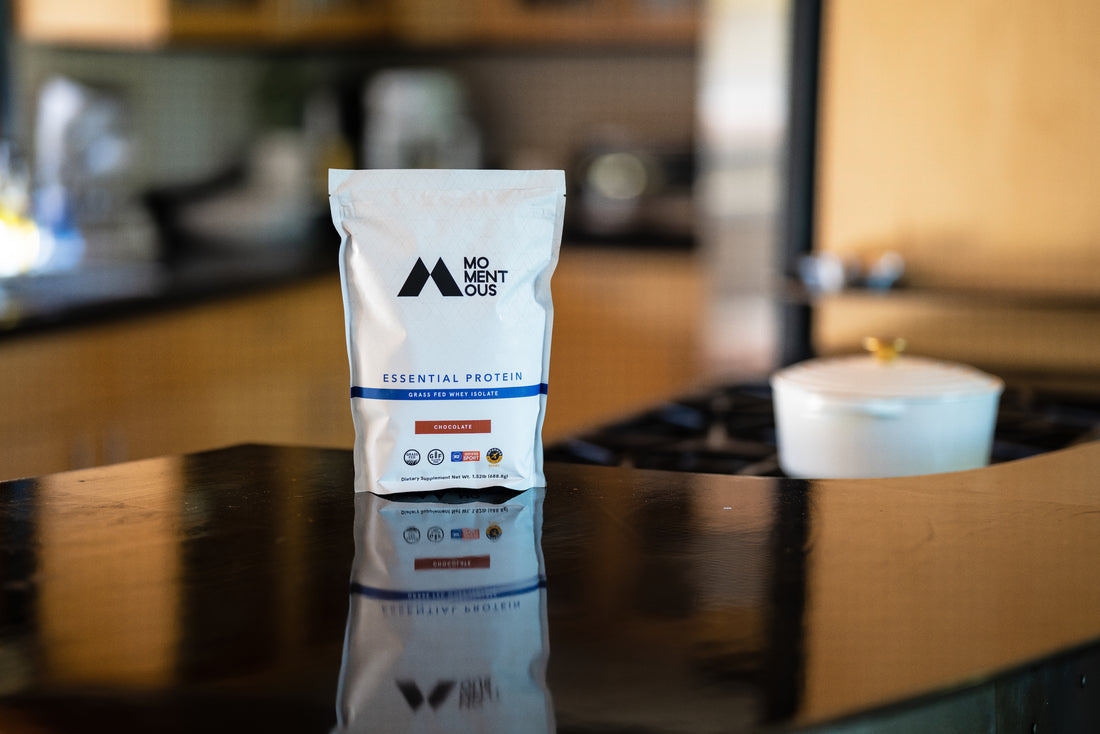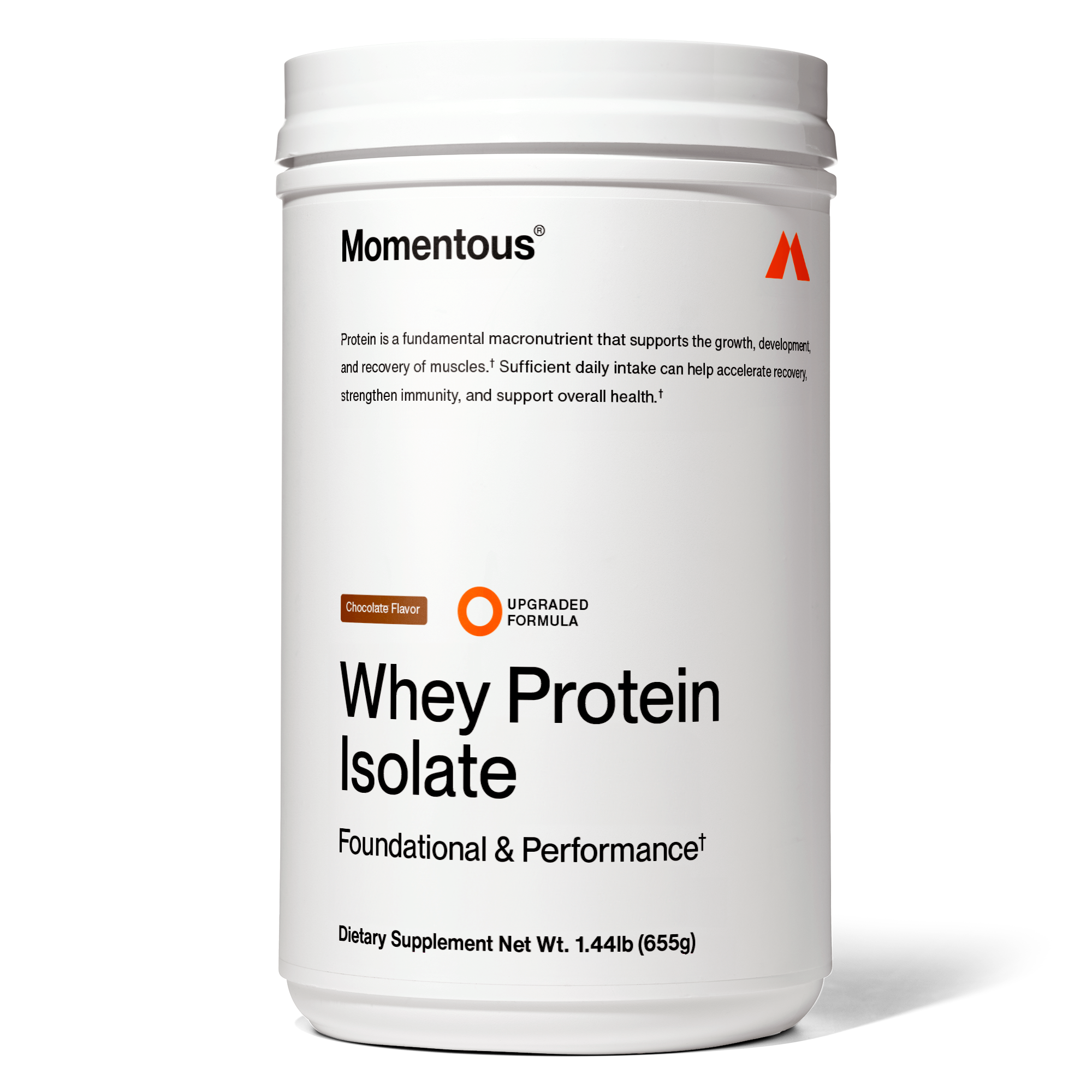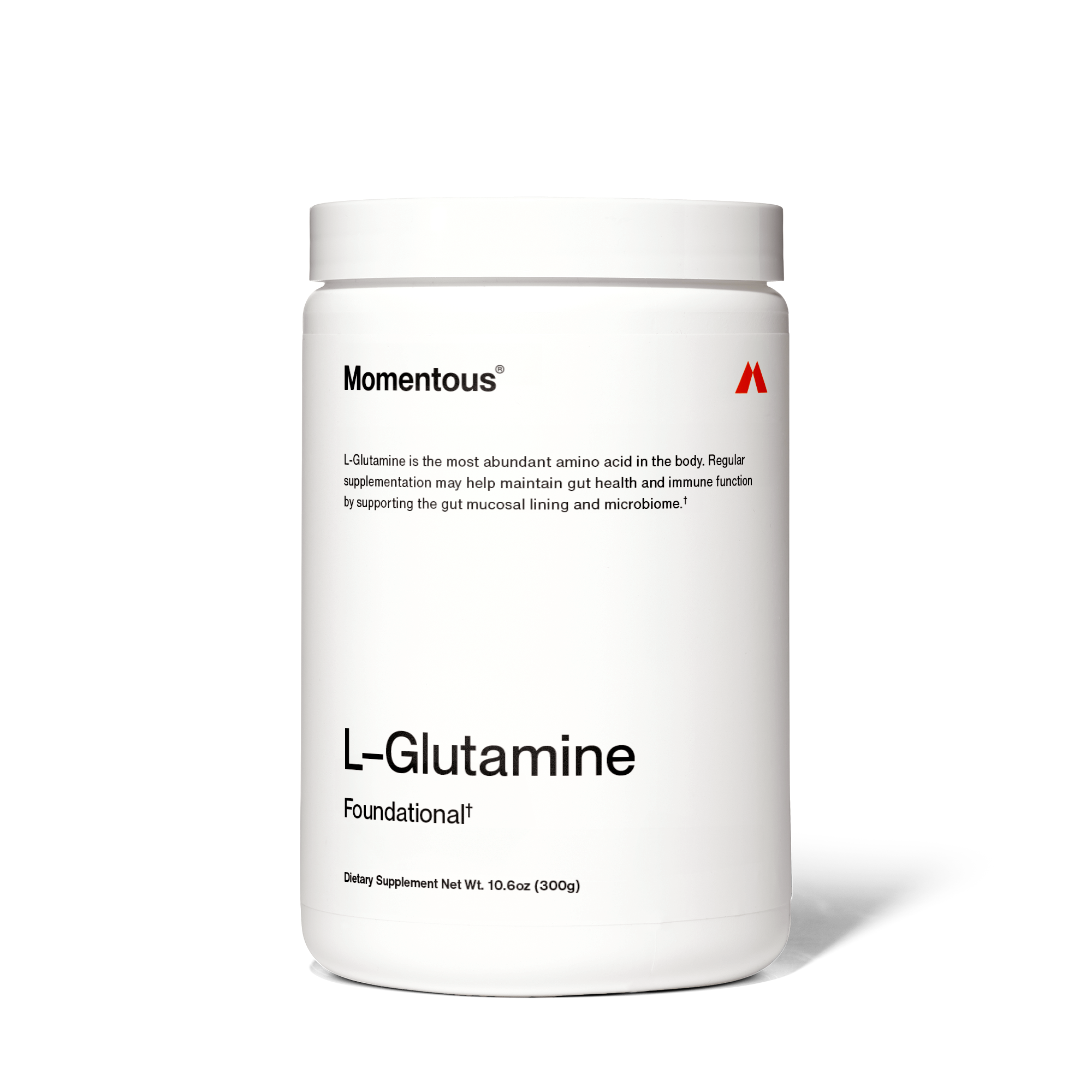European grass-fed whey isolate for recovery + muscle support
Supports gut health, immune function, and muscle recovery
You are probably well aware that protein can fuel your busy lifestyle and enable you to recover from physical activity. But did you know that it also plays a key role in immune function? In this article, we’ll take a look at protein’s role in immunity and share some tips on other ways you can keep your immunity high.
You are probably well aware that protein can fuel your busy lifestyle and enable you to recover from physical activity. But did you know that it also plays a key role in immune function? In this article, we’ll take a look at protein’s role in immunity and share some tips on other ways you can keep your immunity high.
Our immune response was once thought to be predetermined. But over the past couple of decades, researchers have learned that innate, acquired, and adaptive immunity are more dynamic than previously thought and, as a result, can be manipulated by lifestyle factors. These include diet, sleep, recovery, and even exercise (more on the connection between these last two later).
What Part Does Protein Play in the Immune System?
Protein is one of the dietary factors that can positively impact your immunity. While most of the attention on this vital macronutrient centers on its role in building and repairing muscle tissue that’s damaged during exercise, protein has several other crucial roles in your body. These include providing structure for your organs, hair, skin, and nails, keeping your hormones balanced, forming new cells, and, for the purposes of this article, supporting a healthy immune system.
When you eat protein, your digestive system breaks it down into smaller amino acids. These are then shuttled around your body and broken down further by enzymes and cofactors so they can perform the various functions. According to a study published in the British Journal of Nutrition, amino acids have three main roles in immunity.[i] First, they activate natural killer (NK) cells that limit the spread of microbial infections and tumors, macrophages that detect, identify, and eliminate bacteria and other damaging organisms, and B and T lymphocytes that create virus and bacteria-fighting antibodies and destroy infected cells.[ii]
Second, amino acids regulate the redox state that regulates your antioxidant response to oxidative stress and prevents the kind of chronic inflammation that encourages disease to flourish.[iii] They also help your express disease-fighting genes and increase the rate at which your body produces lymphocytes in response to an infection. Third, amino acids stimulate the release of cytokines, which send messages between cells and activate certain immune responses in them depending on the kind of threat your body is being exposed to.[iv] In summary, processes in every aspect of your immune response depend on amino acids.
Why is My Protein Intake Important for Immunity?
All of the immune system actions we just mentioned will take place to some degree automatically. But for your body to perform them optimally, you need to be getting enough protein. The authors of the first study cited in this article noted that the amino acids arginine, glutamine, and cysteine are particularly important for regulating immune function. A paper published in Nutrients added that you need sufficient glutamine if your body is to produce enough cytokines, lymphocytes, and macrophages to tackle infections, viruses, and diseases.[v]
All of these essential amino acids (those that your body cannot produce on its own) are found in foods that offer complete protein. These include eggs, dairy products, fish, meat, and soy. You can also create a full amino acid spectrum in your meals by combining incomplete protein sources like beans, grains, and vegetables. That being said, it can be difficult to get enough complete, high-quality protein from your diet alone, particularly when you’re training hard and your immune system is working overtime.
In which case, supplementing with grass-fed whey isolate or plant-based protein can help top up your overall intake. Drinking a shake containing Momentous Recovery after your endurance sessions is a good starting point, while mixing a scoop of Momentous Essential Whey Protein like runners Sarah and Ben True do or adding it to homemade protein balls can add an amino acid punch to your on-the-go snacks.
What Else Can I Do to Improve My Immune Response?
Consuming adequate protein from food and supplements isn’t the only way to bolster your immunity. As we shared in a recent post, sleep might be your biggest weapon in warding off sickness. In a study conducted at the University of California, San Francisco, participants who only got four to six hours of shuteye were four times more likely to catch a cold than those who got at least seven hours.[vi] Sticking to consistent sleep and wake times, creating a calming nighttime routine, and limiting evening caffeine, alcohol, and screen time can all help. A natural aid like Momentous Elite Sleep can also help stabilize your circadian rhythm, reduce anxiety, and ease your body into restful slumber.
Scientists now believe that up to 70 percent of immune system function is determined by what goes on in your gut and specifically gut-associated lymphoid tissue.[vii] The diversity and activity of your microbiome – the collection of microscopic organisms that live inside you and on your skin and determine gut health – is somewhat genetic but can be influenced by what you eat. While you could take a probiotic, the easiest path to improve gut health is simply getting more fiber from fruit, vegetables, and whole grains. Adding fermented foods like kombucha, kimchi, and Bubbies pickles to your diet also helps, as does reducing the amount of refined sugar that you eat.
As COVID-19 spread, researchers from around the world started to look for commonalities and patterns among those people who had been infected. One of their most promising findings is that insufficient levels of certain micronutrients can make you more susceptible to viruses. While it’s still too early to make an authoritative statement about the link between your vitamin and mineral intake and susceptibility to the coronavirus, the current literature suggests that there is a correlation. A recent review in BMJ Nutrition stated that selenium, zinc, and vitamins, A, C, D, and E support a healthy immune system, especially among people at high risk of infection.[viii] Researchers from the University of Bath in England have also found that getting at least 150 minutes of aerobic exercise each week can improve immunity. [ix]
Pairing these diet and lifestyle improvements with consuming adequate, high-quality protein might not make you completely bulletproof, but will give your immune system a boost, reduce the likelihood of you becoming sick, and limit the duration.
[i] Peng Li et al, “Amino Acids and Immune Function,” British Journal of Nutrition, August 2007, available online at https://pubmed.ncbi.nlm.nih.gov/17403271/.
[ii] RLE Cano and HDE Lopera, “Introduction to T and B Lymphocytes,” Autoimmunity: From Bench to Bedside, July 18, 2013, available online at https://www.ncbi.nlm.nih.gov/books/NBK459471/.
[iii] Lisa Mullen et al, “How the Redox State Regulates Immunity,” Free Radical Biology & Medicine, September 2020, available online at https://pubmed.ncbi.nlm.nih.gov/31899344/.
[iv] Arunabha Ray and Jagdish Joshi, “Cytokines and their Role in Health and Disease: A Brief Overview,” MOJ Immunology, October 19, 2016, available online at https://www.researchgate.net/publication/309303196_Cytokines_and_their_Role_in_Health_and_Disease_A_Brief_Overview.
[v] Vinicius Cruzat et al “Glutamine: Metabolism and Immune Function, Supplementation and Clinical Translation,” Nutrients, October 2018, available online at https://www.ncbi.nlm.nih.gov/pmc/articles/PMC6266414/.
[vi] Aric A Prather et al, “Behaviorally Assessed Sleep and Susceptibility to the Common Cold,” Sleep, September 1, 2015, available online athttps://www.ncbi.nlm.nih.gov/pmc/articles/PMC4531403/.
[vii] G Vighi et al, “Allergy and the Gastrointestinal System,” Clinical and Experimental Immunology, September 2008, available online athttps://www.ncbi.nlm.nih.gov/pmc/articles/PMC2515351/.
[viii] Shane McAuliffe et al, “Dietary Micronutrients in the Wake of COVID-19: An Appraisal of Evidence with a Focus on High-Risk Groups and Preventative Healthcare,” June 2020, BMJ Nutrition, Prevention & Health, available online at https://nutrition.bmj.com/content/early/2020/06/17/bmjnph-2020-000100.
[ix] Richard J Simpson et al, “Can Exercise Affect Immune Function to Increase Susceptibility to Infection?” Exercise Immunology Review, March 2020, available online at https://pubmed.ncbi.nlm.nih.gov/32139352/.













